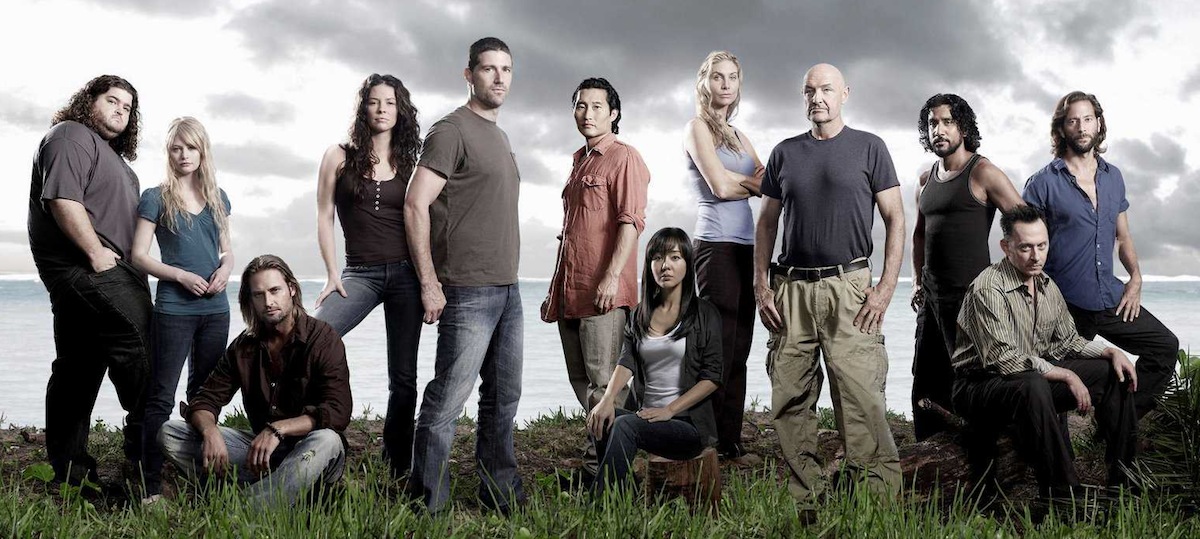Lost: uno sguardo ravvicinato alla genesi della serie

«We have a week to basically cook the most ambitious, expensive television show ever.»
In un esclusivo estratto da The Revolution Was Televised, Alan Sepinwall ci racconta le origini di una serie che non ha bisogno di presentazioni. L’intero frammento è molto interessante in quanto, oltre a descrivere la genesi dello show, ci fa riflettere sulle responsabilità dei suoi autori (in particolare Lindelof) e la pressione a cui erano sottoposti.
Nearly every creative decision at the start of the show was made under the assumption that it would never succeed.
Lloyd Braun, chairman di ABC Entertainment, ebbe l’illuminazione in vacanza con la famiglia alle Hawaii. Dopo aver visto Cast Away con Tom Hanks, immaginò una serie basata su quella storia. Inoltre gli venne in mente lo show Survivor, e l’idea cominciò a prendere forma. Dopo che la sceneggiatura per il pilot di Jeffrey Liber fu rifiutata dallo stesso Braun – persino il titolo in quel caso fu cambiato in Nowhere – un altro sceneggiatore, di cui probabilmente avete sentito parlare, fu ingaggiato.
Braun turned to the one writer he suspected could do something with this on such short notice: J.J. Abrams.
La risposta di Abrams fu qualcosa come «ci dormirò sù», ma, come rivelò lui stesso, Lost lo tenne sveglio tutta la notte. Dal primo momento le intuizioni dello sceneggiatore, già noto per il suo lavoro in Alias, si rivelarono decisive.
Suggerì, per esempio:
The island has to be a character in the show, and something’s wrong with the island.
Quella maledetta isola.
Poi subentrò Damon Lindelof – che forse ricordate grazie a questa intervista per On The Verge – al quale fu suggerito di fare colpo su Abrams in modo da ottenere lavoro per lo show Alias.
In order to impress J.J., Lindelof needed some good ideas for the pilot. He read Lieber’s script and realized, “The biggest problem with the show was the audience would want the characters to get off the island. How do we defuse that desire?” He wanted to fill the cast with characters who would have no interest in going back to their old lives, and further sate the audience’s appetite for mainland stories by featuring flashbacks to those old lives in each episode.
Mi sembra evidente che già in quella fase embrionale del progetto il contributo di Lindelof fu sostanziale e decisivo. Questa fu per i due autori un’occasione senza precedenti.
We have a week to basically cook the most ambitious, expensive television show ever.
Alla fine l’outline scritto dai due – non c’era tempo per una sceneggiatura – funzionò e si arrivò al pilot in meno di otto settimane, una tempistica assurda e senza precedenti nella storia della televisione.
The development process had been tumultuous and rushed. It had cost more than any TV pilot had before. And it was, to everyone’s surprise, worth every penny and bit of stress, because it was great.
Quel Lloyd Braun da cui tutto ebbe inizio fu licenziato, ma la sua creature gli sopravvisse e, come sappiamo bene, ha avuto il successo che meritava. Ma per Lindelof la strada non fu certo in discesa, anzi al successo iniziale delle seconda stagione reagì con «terrore, depressione, attacchi d’ansia.» La responsabilità era enorme e lo show doveva continuare.
I was completely and totally creatively crippled by people saying … ‘How are they going to keep this up?’ I had no idea.
Per quanto riguarda la mitologia e la meccanica più profonda della storia, inizialmente c’era solo questa idea che i personaggi fossero finiti sull’Isola per prendere parte a «una specie di lotta tra il Bene e il Male». Solo successivamente la questione fu articolata e, per esempio, venne fuori la figura di Jacob e la Dharma Initiative cominciò ad avere una storia.
Cito per concludere alcune efficaci parole dello stesso Lindelof:
The reality is I would not change a thing. I would go through that tenfold. That summer was so amazing. I have never been through anything like that in my life. My wife and I would be out eating breakfast together, and people would be at the table next to us going, ‘What do you think’s in the hatch?’ The fact that that would have only lasted a week versus three months; that sense of anticipation and excitement, and I was one of only ten people on the planet who knew the answer to this question, it was pretty cool.